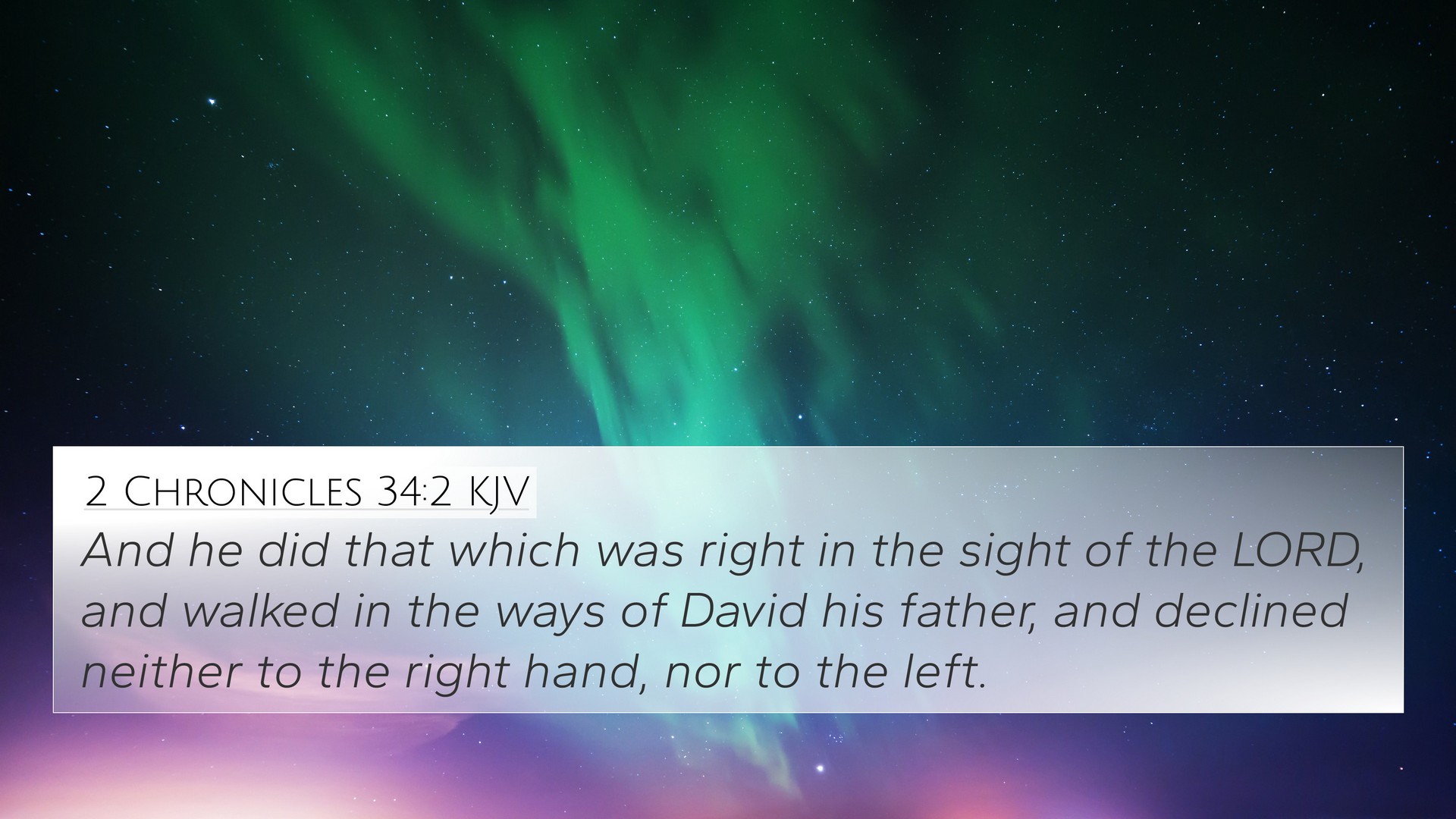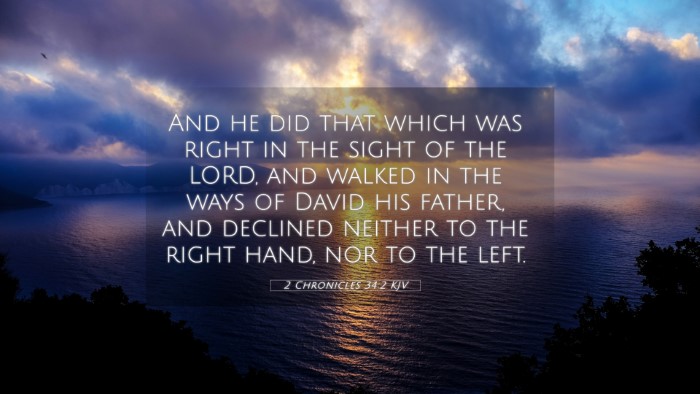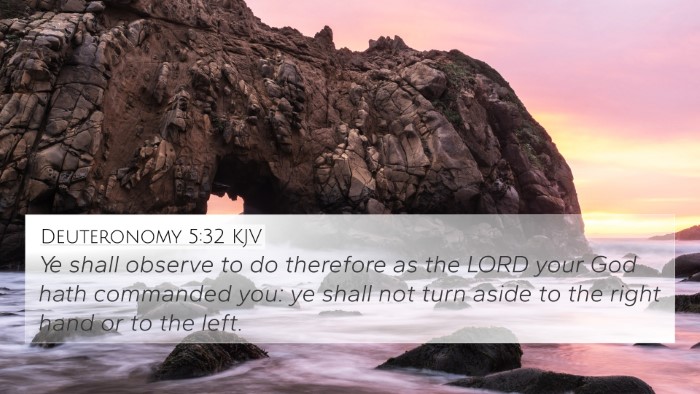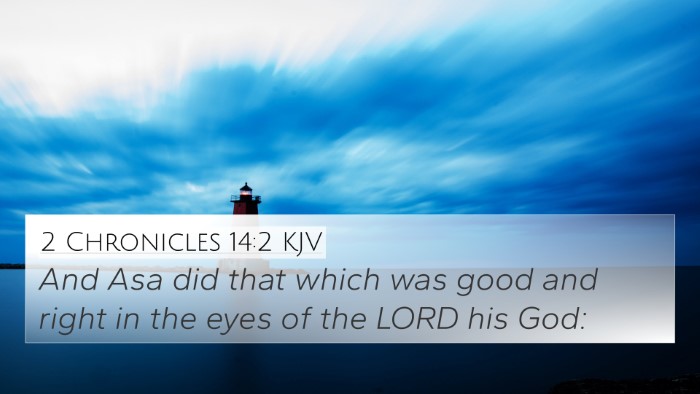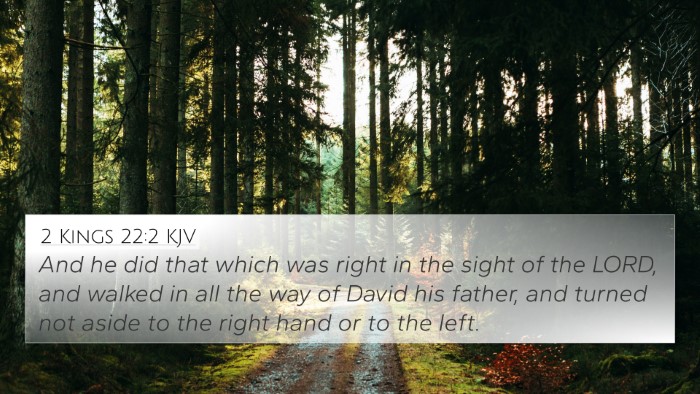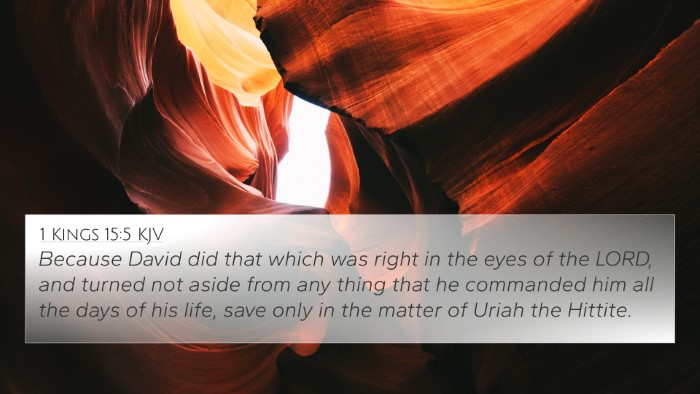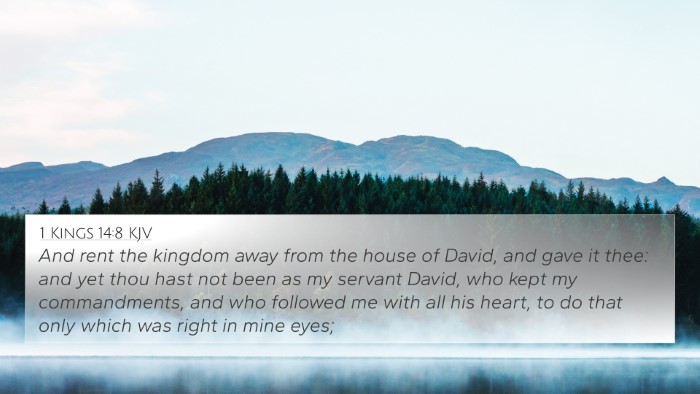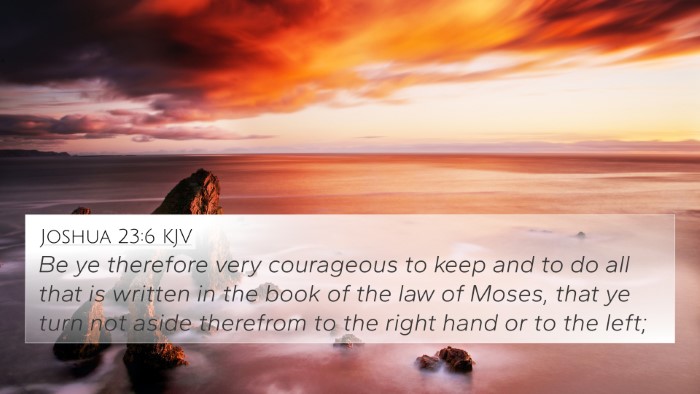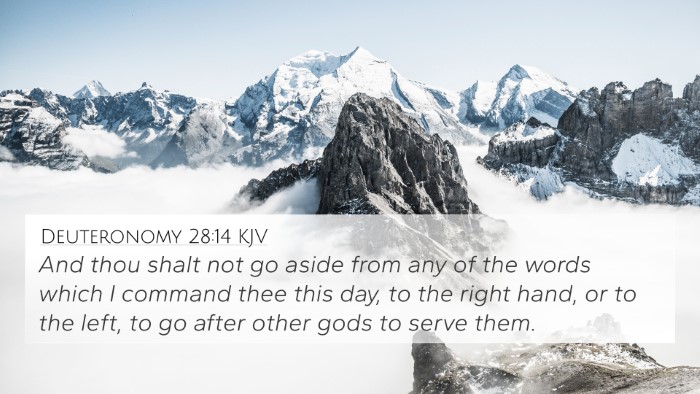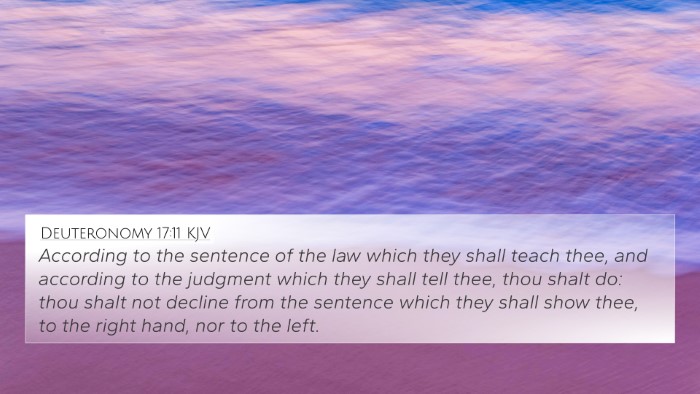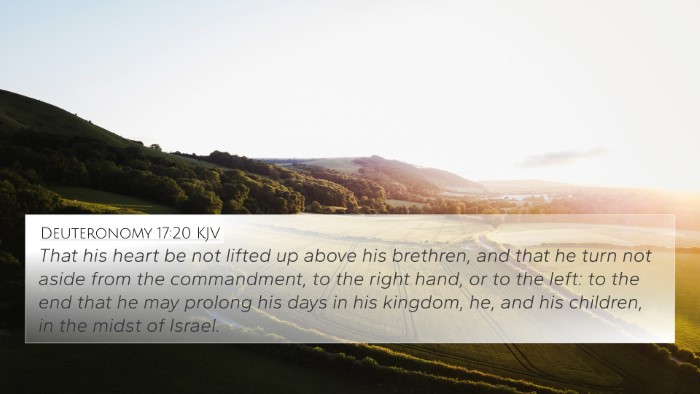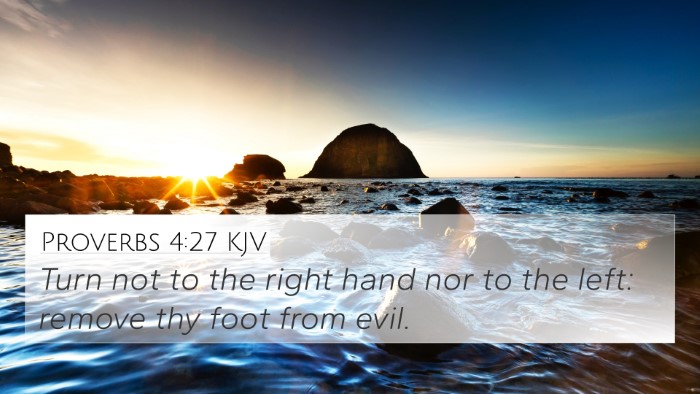Understanding 2 Chronicles 34:2
Verse: "And he did that which was right in the sight of the LORD, and walked in the ways of David his father, and declined neither to the right hand, nor to the left."
Summary: This verse introduces King Josiah, highlighting his righteousness and commitment to God's ways, contrasting with the disobedience of previous kings in Judah. It signifies a return to faithful worship and adherence to God's laws.
Verse Meaning and Analysis
In this verse, Josiah's actions are praised as "right" in the sight of the Lord. According to Matthew Henry, this reflects his alignment with God's expectations and his intention to govern with integrity. The comparison to King David suggests that Josiah was a king who sought to revive true worship and reform the nation, following the example of his ancestor David. This connection is crucial, as it establishes a lineage of faithfulness that contrasts the wickedness of others who ruled before him. Albert Barnes emphasizes that Josiah "walked in the ways of David," meaning he actively followed the path of godliness and obedience, avoiding the mistakes of previous rulers who had led Israel astray.
Historical Context
The time of Josiah's reign was marked by great spiritual decline within Judah. Adam Clarke notes that many kings before him had strayed from God's commandments, leading to idolatry and a disregard for the law. Josiah's ascension to the throne and his early actions offered hope for spiritual rejuvenation. His commitment to the ways of David indicates a deliberate choice to restore true worship among the people, aligning with the divine principles set forth in Scripture.
Thematic Connections
This verse serves as a critical thematic link in the narrative of Israel's history of kings. It draws attention to the recurring motif of righteous leadership versus wicked leadership.
- Righteous King vs. Wicked Kings: Josiah's righteousness is juxtaposed with the failures of prior rulers. This theme is echoed throughout the books of Kings and Chronicles.
- Restoration of True Worship: The text suggests a movement towards restorative practices in worship, which are central to Josiah's reforms (see 2 Chronicles 34:8-33).
- Faithfulness and Covenant: The reference to walking in David's ways indicates a renewed commitment to the covenant relationship stipulated in the Torah.
Bible Verse Cross-References
- 1 Kings 15:11: This verse compares Josiah to Asa, another king who did what was right in God's eyes.
- 2 Kings 22:2: This parallel verse similarly describes Josiah's commitment to God, emphasizing his adherence to God's commands.
- 2 Chronicles 33:9: A contrast to Josiah, this verse discusses the evil reign of Manasseh and the implications of leading a nation away from God.
- Jeremiah 22:15-16: Noting that true kingship involves knowing and executing justice and righteousness, which Josiah embodies.
- Psalms 119:105: The importance of God's word in guiding one's path, which Josiah undertook seriously.
- Matthew 1:6: The genealogy of Jesus includes David, affirming the Messianic expectations associated with Josiah's lineage.
- 2 Kings 23:25: Highlights the exceptional devotion of Josiah, resembling none others before him in faithfulness.
Applications and Themes for Modern Context
The passage emphasizes the importance of integrity in leadership, a lesson that is applicable in contemporary society. Just as Josiah chose to align himself with God and walk in righteousness, modern leaders are encouraged to pursue moral clarity and aim for justice.
Moreover, the theme of returning to faith puts emphasis on the need for revival and reform, whether in personal, ecclesial, or societal contexts. Like Josiah, individuals today are called to reject the "right and left" tendencies that divert from God's path and remain steadfast in their commitment to biblical principles.
Further Insights and Reflections
As one reflects on Josiah's legacy, it is beneficial to consider how scripture cross-references enrich our understanding of righteousness. The cross-referencing of biblical themes illustrates how God's word weaves a cohesive narrative that is relevant across cultures and time periods.
In summary, 2 Chronicles 34:2 presents a powerful image of a young king committed to the ways of the Lord, highlighting themes of righteousness, restoration, and leadership that resonate throughout both the Old and New Testaments.
